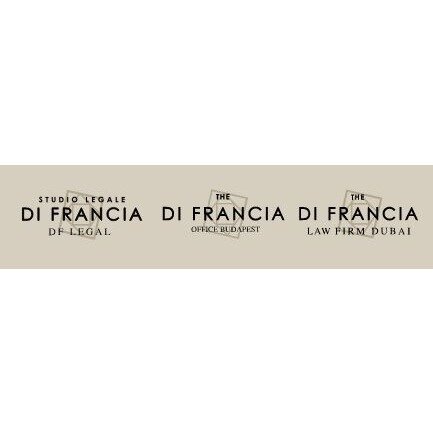Best Natural Resources Lawyers in Bologna
Share your needs with us, get contacted by law firms.
Free. Takes 2 min.
List of the best lawyers in Bologna, Italy
About Natural Resources Law in Bologna, Italy
Bologna, located in the Emilia-Romagna region of Italy, is a hub of agricultural and industrial activity, both heavily reliant on natural resources. The area is characterized by diverse landscapes including fertile plains, river valleys, and mountainous terrain. Natural Resources Law in Bologna primarily deals with the management, conservation, and utilization of these resources, encompassing water, soil, minerals, forests, and biodiversity. This legal area seeks to balance economic development with environmental protection, ensuring that resource extraction and usage programs conform to both national and European environmental regulations.
Why You May Need a Lawyer
There are several common scenarios where individuals or companies might seek legal assistance in Natural Resources. These include:
- Navigating regulatory requirements for resource extraction or land development.
- Resolving disputes over land use or water rights.
- Ensuring compliance with environmental protection laws when farming or setting up manufacturing processes.
- Addressing issues related to the impact of industrial activities on natural habitats and biodiversity.
- Litigating in cases of pollution or environmental damage caused by industrial enterprises.
Local Laws Overview
Bologna’s local laws regarding natural resources often align with broader national and EU directives aimed at sustainable development and environmental conservation. Key legal aspects include:
- Water Management: Regulated by both regional decrees and the National Water Protection Act, focusing on sustainable management and quality control of water resources.
- Land Use and Planning: Land is governed by local zoning laws that determine its usage for agriculture, industry, or urban development, emphasizing sustainable practices.
- Environmental Protection: Both the Environmental Code of Italy and specific regional statutes impose obligations on pollution control and habitat conservation.
- Industrial Emissions: Regulations focus on minimizing emissions and pollutants, adhering to standards set by both local authorities and EU regulations.
- Biodiversity and Conservation: Laws aim to protect wildlife and natural habitats, often requiring impact assessments before major projects.
Frequently Asked Questions
What types of projects require environmental impact assessments in Bologna?
Projects with significant potential impact on the environment, such as large-scale industrial developments, infrastructure projects, and certain agricultural expansions, require detailed environmental impact assessments.
How are water usage rights determined in Bologna?
Water rights are typically regulated by regional authorities and are based on historical usage, legal rights under Italian law, and EU directives ensuring sustainable use and distribution.
What is the process for resolving land use disputes?
Land use disputes can often be mediated through local administrative bodies but may require litigation if parties cannot reach an agreement. Professional legal consultation is recommended in these cases.
Are there local incentives for sustainable natural resource management?
Yes, the local government, in line with EU policies, offers incentives for adopting sustainable practices, particularly in agriculture and renewable energy sectors.
What penalties exist for non-compliance with environmental laws?
Penalties for non-compliance can include fines, suspension of operations, and mandatory restoration activities, based on the severity of the breach.
Can foreign companies acquire land for resource extraction in Bologna?
Foreign companies can acquire land but must comply with local zoning laws and regulatory approvals, ensuring alignment with sustainability and environmental norms.
Who oversees the enforcement of Natural Resources Law in Bologna?
Enforcement is overseen by a combination of regional authorities, including local environmental agencies, the Carabinieri, and national bodies like the Ministry for the Environment, Land and Sea.
How does Bologna support biodiversity conservation?
The city and region are actively involved in projects and initiatives aimed at conserving local biodiversity, often in collaboration with academic institutions and non-governmental organizations.
What role do private citizens play in natural resource management?
Citizens can play a significant role by participating in public consultations, reporting violations, and supporting local conservation efforts.
Are there legal resources specifically for farmers regarding resource management?
Yes, farmers can access various resources through regional agricultural agencies and consortiums dedicated to sustainable farming practices and compliance with environmental laws.
Additional Resources
For further assistance, consider reaching out to the following:
- Regional Environmental Protection Agency (ARPAE): Offers guidance and oversight on environmental matters.
- Chambers of Commerce of Bologna: Provides resources and advice for businesses, including those dealing with natural resources.
- Local Agricultural Associations: Provide support and legal advice for compliance with environmental laws in agriculture.
- University of Bologna, Department of Agricultural and Food Sciences: Offers research and resources focused on sustainable practices and natural resource management.
- Non-Governmental Organizations (NGOs): Organizations such as WWF Italy can offer additional support and guidance on conservation efforts.
Next Steps
If you require legal assistance with natural resources issues in Bologna, consider the following steps:
- Identify the specific legal issue or question you need to address regarding natural resources.
- Research and consult with a qualified lawyer specializing in environmental or natural resources law.
- Prepare all necessary documentation and evidence related to your case or inquiry.
- Consider reaching out to the appropriate governmental body or local agency for guidance and support.
- Stay informed and engaged in local regulatory changes that might affect your interests in the field of natural resources.
Lawzana helps you find the best lawyers and law firms in Bologna through a curated and pre-screened list of qualified legal professionals. Our platform offers rankings and detailed profiles of attorneys and law firms, allowing you to compare based on practice areas, including Natural Resources, experience, and client feedback.
Each profile includes a description of the firm's areas of practice, client reviews, team members and partners, year of establishment, spoken languages, office locations, contact information, social media presence, and any published articles or resources. Most firms on our platform speak English and are experienced in both local and international legal matters.
Get a quote from top-rated law firms in Bologna, Italy — quickly, securely, and without unnecessary hassle.
Disclaimer:
The information provided on this page is for general informational purposes only and does not constitute legal advice. While we strive to ensure the accuracy and relevance of the content, legal information may change over time, and interpretations of the law can vary. You should always consult with a qualified legal professional for advice specific to your situation.
We disclaim all liability for actions taken or not taken based on the content of this page. If you believe any information is incorrect or outdated, please contact us, and we will review and update it where appropriate.












